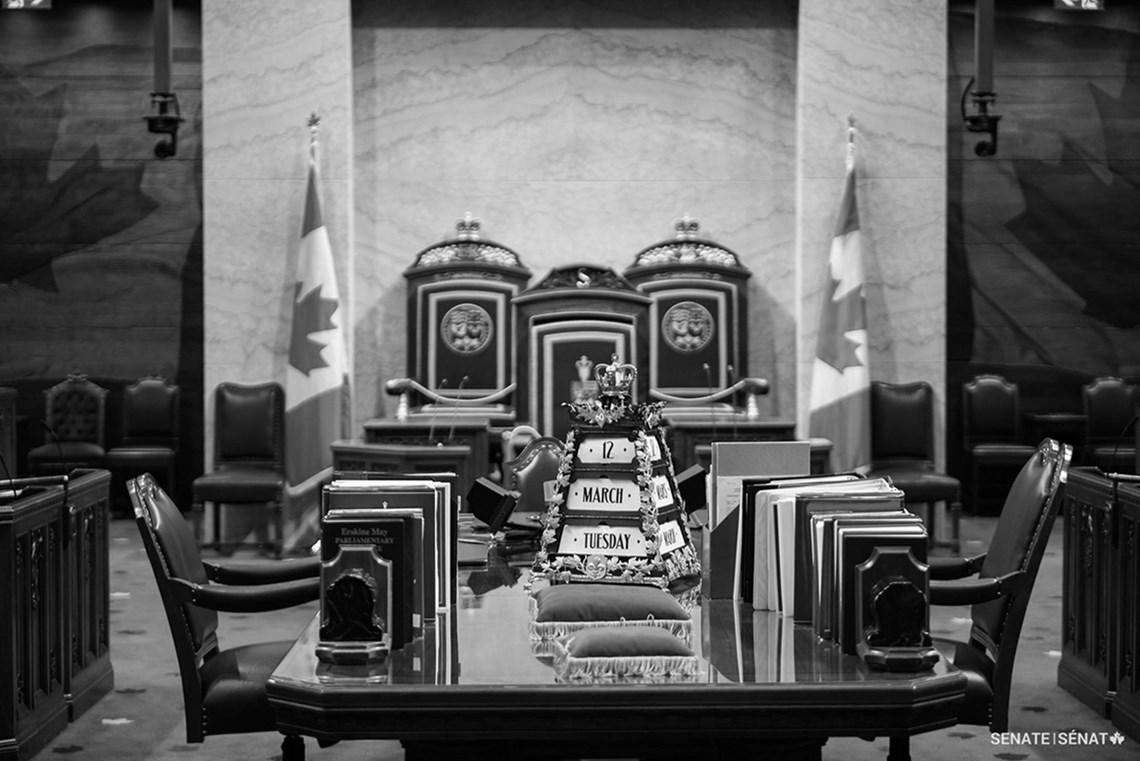Summary of Key Obligations of Senators under the Ethics and Conflict of Interest Code for Senators
- Senators are required to give precedence to their parliamentary duties and functions over any other duty or activity.
- Senators are expected to arrange their private affairs so that foreseeable real or apparent conflicts of interest may be prevented from arising, and if such a conflict does arise, to resolve it in a way that protects the public interest.
- Senators are required to uphold the highest standards of dignity inherent to the position of senator.
- Senators must refrain from acting in a way that could reflect adversely on the position of senator or the institution of the Senate.
- Senators must perform their parliamentary duties and functions with dignity, honour and integrity.
- Senators must refrain from engaging in conduct that constitutes harassment and violence.
- Senators may not act in any way to further their private interests, or those of their family members, or to improperly further another person’s or entity’s private interests when performing parliamentary duties and functions.
- Senators may not use their position to influence a decision of another person in order to further their own private interests, or those of their family members, or to improperly further another person’s or entity’s private interests.
- Senators may not use information that is generally not available to the public to further their own private interests, or those of their family members, or to improperly further another person’s or entity’s private interests.
- Senators are required to make a declaration, orally or in writing, when they have reasonable grounds to believe that they or their family members have a private interest that might be affected by a matter that is before the Senate or a committee of the Senate in which they are members. They may not participate in debate on that matter, nor are they permitted to vote, though they may abstain. In the case of committees, senators must also withdraw from the proceedings. With respect to senators who are only participating in committee proceedings, but are not formal members, they too must refrain from participating in debate on any matter in which they have reasonable grounds to believe they have a private interest and they too must withdraw from the proceedings in question.
- Senators may not accept, nor may a family member accept, any gift or other benefit that could reasonably be considered to relate to their position, except as permitted under the Code. Gifts, benefits and sponsored travel that are acceptable under the Code must be declared to the Senate Ethics Officer if they exceed $500 in value and these must be publicly declared.
- Senators may not derive a benefit from, or have interests in private corporations or partnerships that derive a benefit from, contracts with the Government of Canada unless specifically authorized by the Senate Ethics Officer.
- Senators must file a Confidential Disclosure Statement with the Senate Ethics Officer on an annual basis disclosing their private interests, and those interests that are required to be publicly disclosed under the Code are then made public via the office website and also in paper format at the office of the Senate Ethics Officer.
- Senators must file a Statement of Compliance, annually, confirming that they have read the Code within the last 30 days and that, to the best of their knowledge and belief, they are in compliance with the Code as of the day the statement is filed.
- Senators must report to the Senate Ethics Officer any material change to the information in their Confidential Disclosure Statements, within the prescribed time.
- Senators must cooperate with the Senate Ethics Officer with respect to any preliminary review and any inquiry.

